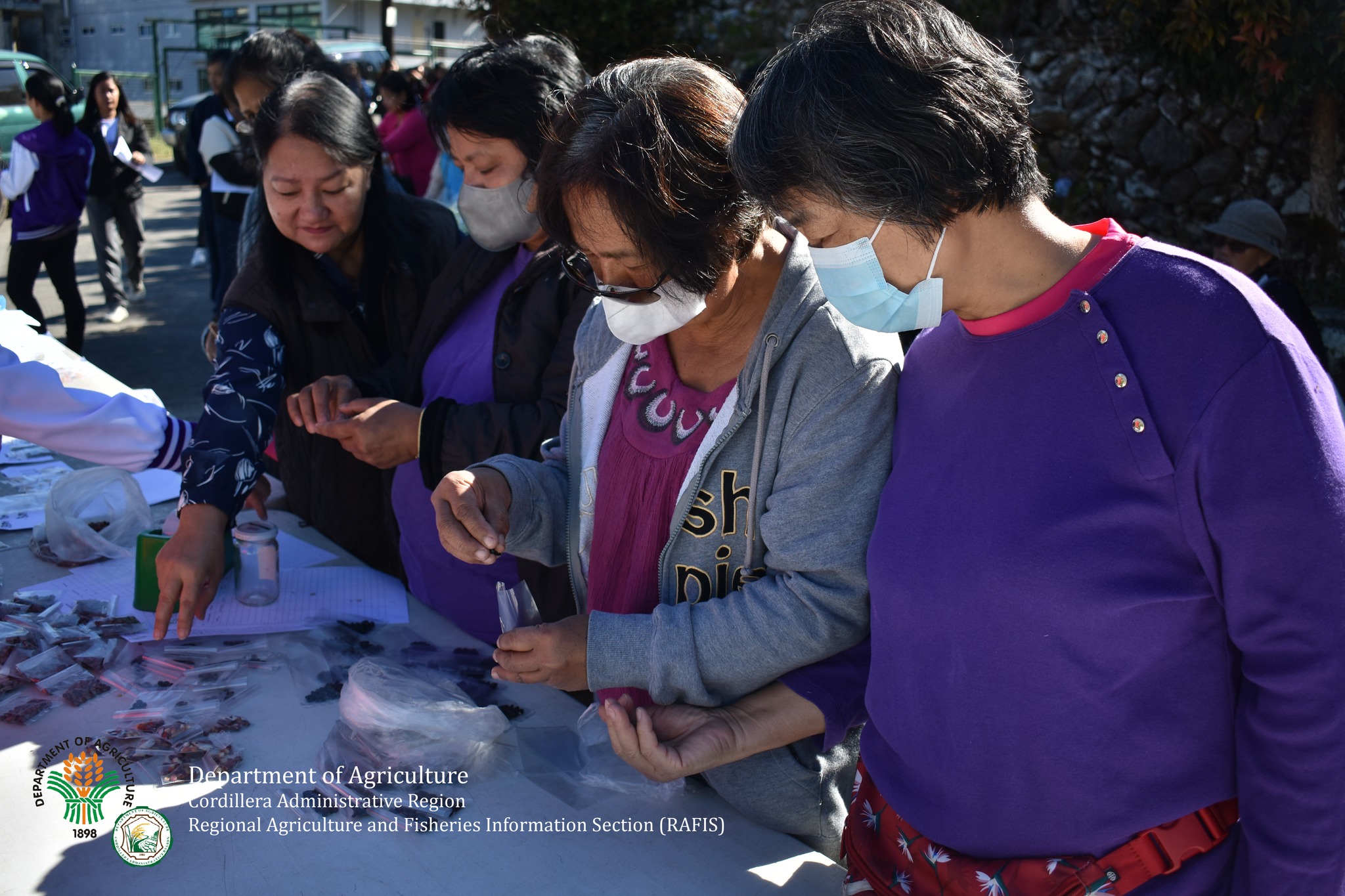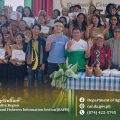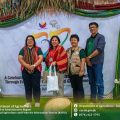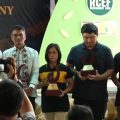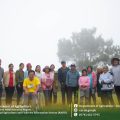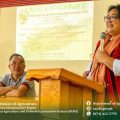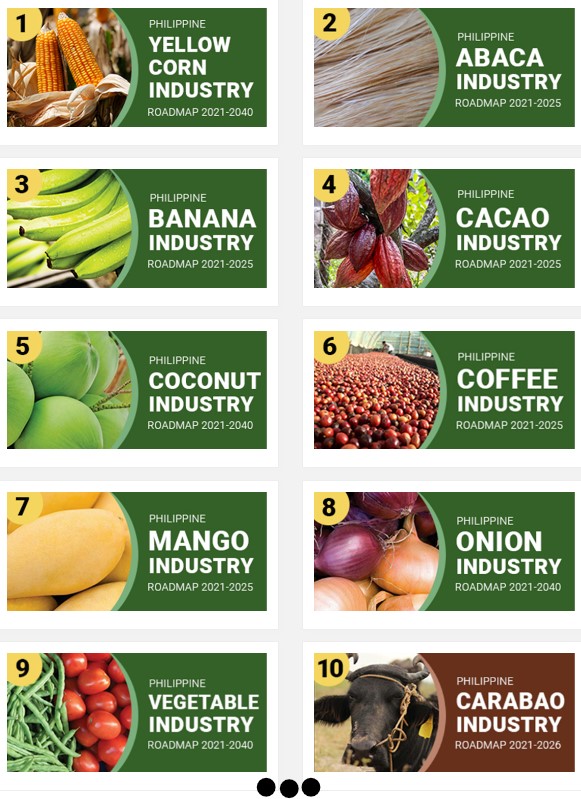The Department of Agriculture-Regional Field Office-CAR starts off this years’ national women’s month celebration with a positive affirmation, continued commitment in closing gender gaps, and gathering support for women’s advocacies in the country.
The month-long celebration is an avenue to highlight women’s achievement both past and present in nation-building, acknowledging women’s contribution to the economy, promoting equality among genders, and giving tribute to women pioneers for progress.
This year’s banner theme “Lipunang Patas sa Bagong Pilipinas: Kakayahan ng Kababaihan, Patutunayan” was anchored in the Philippine Development Plan 2023-2028. The plan emphasized that growth must be inclusive, building an environment that provides equal opportunities to all Filipinos and equipping them with skills to participate fully in an innovative and globally competitive economy.
A kick-off program was held today, March 4, at the BPI Compound, Guisad Baguio City, simultaneous with a seed sharing and exchange activity.
The DA-CAR division chiefs shared updates and messages in support of Women’s Month Celebration.
Ms. Susan Balanza, Planning and Monitoring Evaluation (PMED) Division Chief, reiterated the use of Harmonized Gender and Development Guidelines (HGDG) tool to mainstream Gender and Development (GAD) elements in the DA’s planning and development phases.
The tool ensures that programs, projects and activities undertaken from planning, implementation to monitoring stages are beyond GAD attribution, instead supports gender equity, gender responsiveness and contributes to women’s empowerment.
Furthermore, Mr. Frederick Balanza, Administrative and Finance Division (AFD) OIC chief, also commended the power of women as a group and how women are capable of joining men’s organizations and performing tasks that males do.
Simultaneously, the Search for Outstanding Rural Women was officially launched to give due recognition to rural women who have made outstanding accomplishments in developing the agriculture and fishery sectors and made significant impacts in the lives of the people in the rural areas.
Minimum requirements for the search includes being a bona fide resident of a rural area engaged in agriculture and fishery-based activities; must belong to the small farmer and fisherfolk (SFF) and/ or small entrepreneur category with not more than 3 hectares land ownership and asset not more than P15 million; must be registered to the Registry System for Basic Sector in Agriculture (RSBSA), National Program for Municipal Fisherfolk Registration (FishR); National Coconut Farmers Registry System (NCFRS); or Farmers and Fisherfolk Enterprise Development Information System (FFEDIS); must not be a government employee; must not be related by affinity or consanguinity with current elected government officials; no impending crininal charges; and must not be a former national winner of the DA Search for Outstanding Rural Women or the GAWAD SAKA.
The seed sharing and seed exchange activity was participated by local stakeholders from the Baguio Group Seed Savers, seed-keeping and exchange enthusiasts, BPI, DA-CAR, and BFAR employees.
Ms. Aida Pagtan, Alternate GAD Focal Person, encouraged participants to share the stories of where the seeds originated while doing the activity. This highlights the importance of seed saving as a deeply rooted practice among indigenous communities. Through seed sharing, people tell stories and exchange indigenous knowledge or technologies thereby increasing access to diverse land acres/ varieties.
Ms. Divina Jose, from the Bureau of Plant Industry – Baguio National Crop Research and Production Support Center (BPI-BNCRPSC), also facilitated a question and answer on women’s month and seed saving trivia. The Q&A highlights indigenous ways of seed saving, how to do seed sharing and seed exchange, women’s circumcision in Africa, and the essence of women in men’s perspectives.
The activity is anticipated to continue and pioneer more seed sharing and seed exchange activities as it is important in preserving food cultures, highbred varieties of seeds, protecting genetic diversity of seeds and varieties available for the future as well as in improving food security.
Other activities for the month include Seminar-Workshop on Integrating Gender lens into project development cycle, Brown Bag sessions on Wednesdays, Physical Fitness and Mental Health seminar, Men oppose violence against women everywhere (MOVE) Orientation, and Financial Literacy seminar.// Chamanei C. Elias

